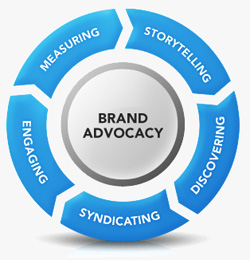Tech Tonics: Paul Bleicher – Physician, Scientist, Entrepreneur, Innovator
A self-described “nerdy” kid from a working class family in a bedroom community of “The City,” on the South Shore of Long Island, Paul Bleicher trained as a physician-scientist, and was heading towards a career in academic medicine when he boldly decided to pivot to industry, where he’s enjoyed a remarkable and storied career in a range of large and small organizations, often very different, but sharing a focus on collecting and using data.
Like David Kessler, Harvey Milk and Stan Lee, our guest, Paul Bleicher grew up in the Five Towns on Long Island, depicted – he points out — in the movie GoodFellas, Thomas Pynchon’s novel, V, and the TV show, Entourage. Paul describes himself as a “late 60’s amalgamation of mathlete and hippie-wannabee with high school-educated parents,” and says he was inspired at a young age by books like Arrowsmith and Microbe Hunters to become a physician-scientist.
Paul studied biology at RPI, attended a transformative summer program in cell physiology at Wood’s Hole, and ultimately was accepted into the MD/PhD program at the University of Rochester, where he pursued his PhD in immunology, and on the medical side, learned about George Engel’s biopsychosocial model of illness, emphasizing the importance of social and environmental factors as well as genetic and biological.
In Boston, at Harvard Medical School, Paul continued his training via a residency in internal medicine then specializing in dermatology, and pursued a post-doc in molecular immunology. This research resulted in a number of high-profile publications, and a plum job as a physician-scientist at MGH.
After a few years on the HMS faculty, Paul took his career in a bold new direction. Inspired in part by his scientist-wife, who had joined one of the earliest immunology-focused biotech startups in Boston, Paul was motivated to pursue his interest in translation in the private sector, and gained valuable experience first at an early CRO, and then at an early-stage biotech.
He then founded an innovative pharma IT company called Phase Forward, and began a thirteen year journey with the company, which was ultimately acquired by Oracle. Paul then joined an early stage innovative health data company, Humedica, which was acquired by Optum, part of the UnitedHealth Group (as David discussed here) in 2013. Paul stayed on at Optum for six years, serving for most of that time as the founding CEO of the analytics and innovation collaborative OptumLabs, until spring 2020.
Paul attributes his success to his “hands on” approach, able to understand both the overarching aims and the underlying details. He is an inventor on six issued patents on health and pharma IT inventions, and initiated a numbers of major projects in area like deep learning, network analysis, machine learning, etc., typically contributing his own R code.
An éminence grise at the intersection of pharma and data, Paul advises numerous companies and investors and serves on a number of boards. We are delighted to welcome him to our show today!
Posted in:
Audio Podcast, Healthcare, Tech Tonics, Technology


